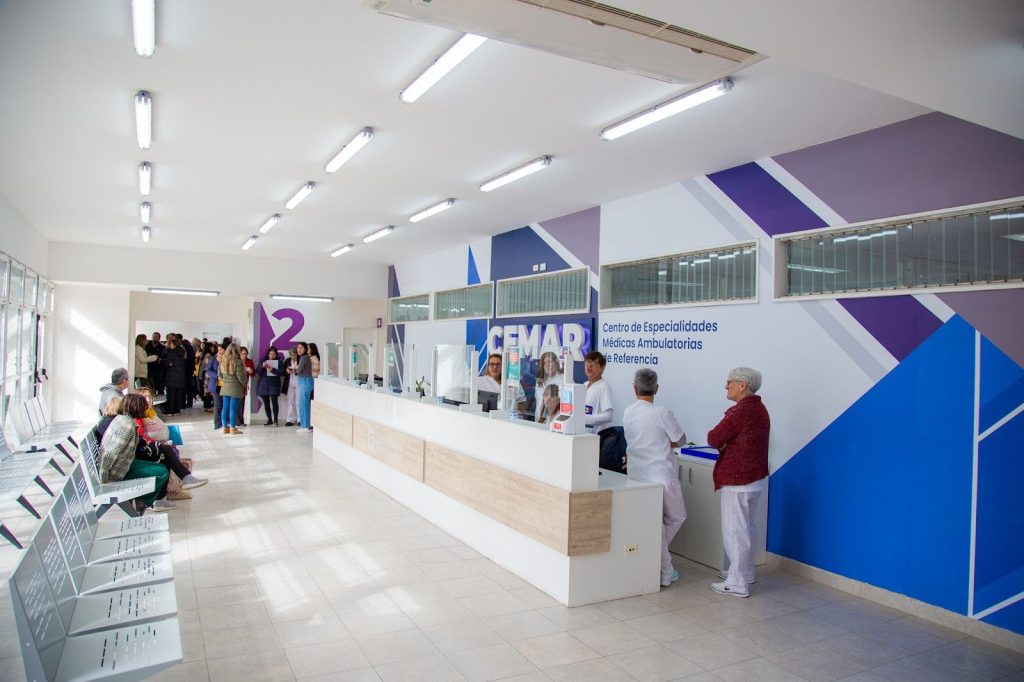Tres de Febrero, Argentina
Making Health Care the Starting Point of Community
Project Type:
Equity, Health & Wellness, High-Performing Government, Technology
At a Glance
15 minutes: The longest a resident in a target population needs to travel to reach a primary health center.
More than 50% of the local population is registered in the municipal public health system, with the proposed minimum goal being 35% (population with only public coverage).
Reduced emergency response time from an average of 60 minutes to 10 minutes, improving public safety and health outcomes.
There is a difference between having the right to health care and having access to health care.
In Argentina, health services are divided among levels of government, and while the country does have universal health care, many residents—especially vulnerable populations—lack access to critical health services. In the 24 municipalities that make up Greater Buenos Aires, 50% of people live in poverty and 54% do not have access to at least some public services.
Given this significant disparity in access, Tres de Febrero, a municipality of 350,000 in the Buenos Aires metro area, understood that it would take transformational change to solve its health care problem.
First, the City analyzed its community needs to identify a priority population of residents who lacked access to government-provided healthcare. The City embarked on an inside-out transformation of its health system with three strategies:
1) Digitize
- Tres de Febrero invested in key digital infrastructure across its health services. This allowed the City to provide more efficient, more accurate and more user-friendly services for residents when they made appointments, filled prescriptions, got blood work, and more. Crucially, the City also transitioned from paper patient records to digital medical profiles, which directly improves patient care by enabling greater data sharing between health providers and faster access to information for patients. Through coordinated enrollment plans with the electronic registry, Tres de Febrero was able to reach a 100% enrollment rate.
2) Decentralize
- A core challenge that Tres de Febrero faced was the distribution of its health services and primary care centers (CAPS). Using geographical data about its target population, the City built two new CAPS in strategic locations so that no one in the target population had to travel more than 15 minutes for primary care. They also increased the number of CAPS that could provide specialized services such as dentistry, gynecology and mental health care. For instance, in 2021, only one CAPS had a lab that could do blood tests. By 2023, all 14 centers could.
3) Revitalize
- Previously, CAPS centers did not exemplify healthy community spaces. They were dilapidated, with exposed electrical wire, flaking paint and visible mold. Being in the buildings did not make residents feel good. Thus, the City renovated more than 14 health care facilities to improve quality of care.

“It is not possible for me to pay for a gym membership, but I have been here every day to exercise because there is space to do so.”
The numbers in Tres de Febrero speak for themselves. The transformation has touched every branch of the City’s health system: emergency response times have dropped by 82%, lab results come in three days, not two weeks, and more than 450 medical professionals have participated in the city’s continuing training program.
This sweeping and dramatic improvement in how Tres de Febrero serves its residents was made possible by data. Tres de Febrero has done more than build health centers: It has created equitable community spaces that build trust in government, deepen community bonds and make lives better.
“As a neighbor, I can see the impact of using data to improve the lives of residents and the community.”
“Certification is a valuable tool for mayors. Using data and evidence adds value to strategic planning and increases your chances of success. Using data is essential but it is not enough. You also need to have empathy and political leadership is how you change people’s lives.”